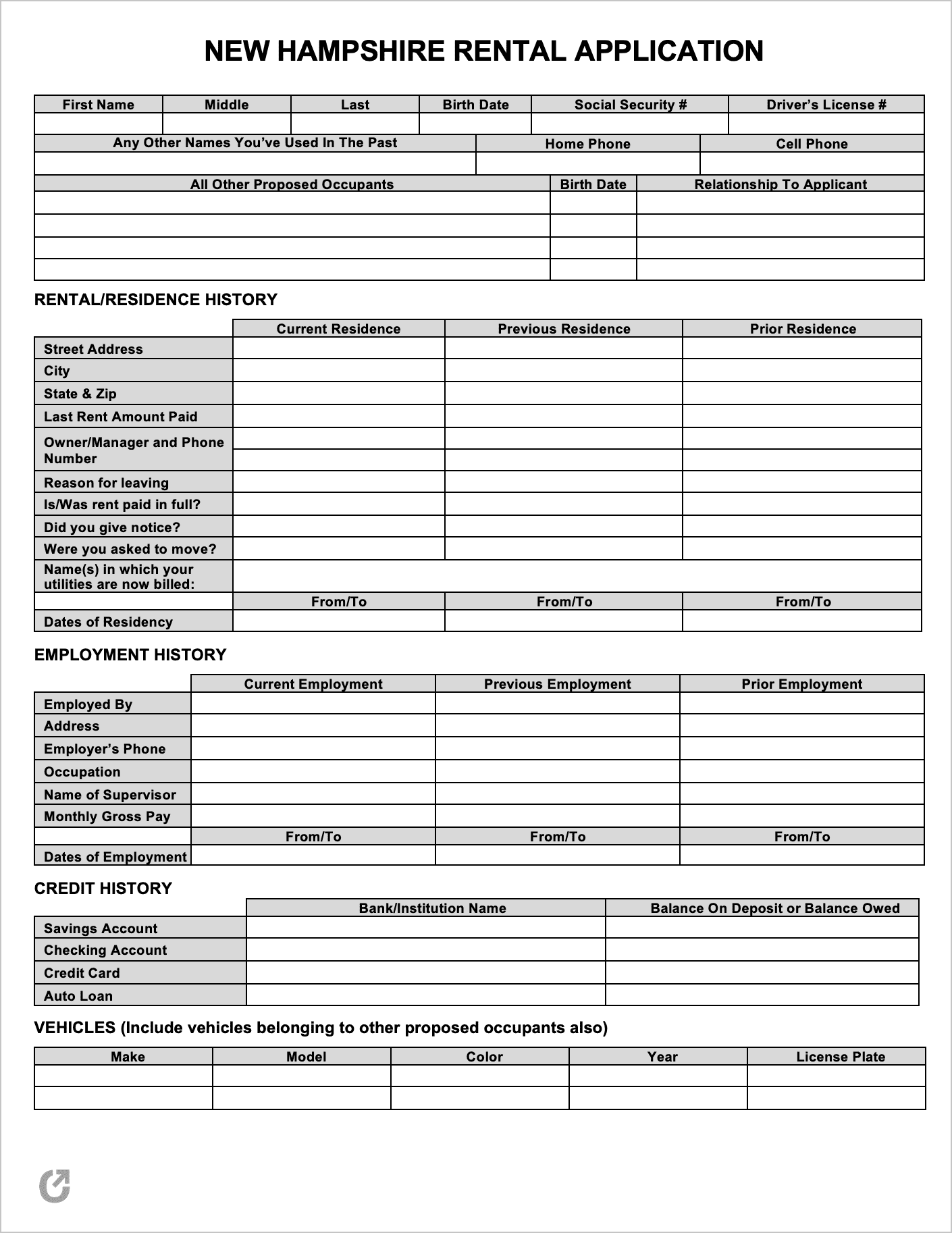New Hampshire Rental Application
The New Hampshire Rental Application is a form issued by landlords to prospective tenants who have shown interest in an available unit or home. The form requires tenants to input sensitive information such as their address, social security number (SSN), income, full name, and credit history, to name a few. Because landlords are entrusted with this information, it is their responsibility to offer a straight-forward and discrimination-free application process.
Ensuring the initial screening process is done correctly is one of, if not the most important job of a property manager. As many experienced landlords will share, the wrong tenant can wreak havoc on a rental, greatly disturb nearby tenants, and cause financial upset due to miss payments. While no document can read an applicant’s mind, it can find discrepancies in their answers compared to the screening reports, it can provide insight into their renting past, and it can give landlords a general idea of how they behave as renters. It is important that landlords conduct a screening interview in addition to issuing the form, as an in-person discussion can oftentimes reveal more about an applicant than anything else.
State Laws
Maximum Application Fee: No limits. New Hampshire landlords can charge any application fee as they see fit. Whatever fee is charged, it should be kept the same for every applicant to avoid committing discrimination.
Maximum Security Deposit (§ 540-A:6): Landlords cannot charge more than $100, or the value of one months’ rent; whichever value is greater.
Returning Deposits (§ 540-A:7): Once the lease has terminated, landlords have thirty (30) days to return the value of the security deposit to the tenant(s). If the landlord intends to remove a portion (or all of) the deposit to repair damage to the property or cover another tenant-caused expense, the landlord has to provide the tenant(s) with a list depicting all of the damages and the repairs necessary to fix each type of damage. Receipts or other means of proof must accompany the list.
